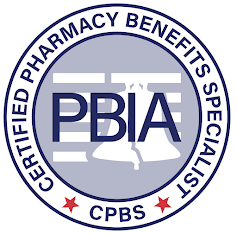The J&J lawsuit should be a wakeup call to the PBM industry — and to companies everywhere and other notes from around the interweb:
- The J&J lawsuit should be a wakeup call to the PBM industry — and to companies everywhere. The ongoing legal dispute involving Johnson & Johnson has again thrust the topic of pharmacy benefit managers (PBMs) into the spotlight. Ann Lewandowski, a J&J employee, sued the company for overpaying for its employees’ prescription drugs through its PBM, Express Scripts, claiming that these overpayments resulted in higher health insurance premiums and out-of-pocket drug costs for employees. This lawsuit is a significant entrant in the recent groundswell of efforts to shine light on the traditional PBM industry and its opaque pricing structures and outdated evaluation models. It follows on the heels of probes by government regulators and attention from Congress into PBMs’ business practices. In late May, executives from three major PBMs were asked to testify before the House Committee on Oversight and Accountability.
- Blue Cross Blue Shield of Michigan dropping coverage of weight loss drugs. Michigan’s largest insurance company said it will begin eliminating coverage of various weight loss drugs next year. In a statement to CBS News Detroit, the company said it is ending coverage of GLP-1 drugs “for large group fully insured members beginning January 1, 2025, or on a group’s 2025 health coverage renewal date.” Additionally, the company said it will change prior authorization requirements for Saxenda, Wegovy and Zepbound beginning Aug. 1. The company said the changes were made “after careful consideration of GLP-1 weight loss drugs’ efficacy, safety and access, and cost. “Blue Cross Blue Shield of Michigan is committed to providing our members with access to high-quality, affordable health care. We also have a responsibility, as stewards of our members’ and customers’ premiums, to ensure that the drugs we pay for benefit our members without adding excessive costs that impact all members and customer groups,” the health system said in a statement.
- Missouri is in the center of a national drug pricing battle — with billions on the line. The stakes nationally are huge, in a medical market with escalating prescription prices and increasing concentration of medical providers in direct employment by hospital groups. Nationally, pharmaceutical manufacturers sold nearly $100 billion in discounted drugs in 2021 and 2022 through a federal program known as 340B, for the section of law where it is authorized. With an average discount of about 60%, according to representatives of the drug manufacturers, the wholesale value of the discounted prescriptions over two years is approximately $250 billion. The retail markup adds hundreds of millions more to the total revenue stream.
- Sanofi and Bristol Myers on the hook for $916M. Hawaii has won more than $900 million in a years-old lawsuit over the blood-thinning drug Plavix, in the largest court award in the state’s history. It’s a victory over two of the country’s largest drug companies, who said they plan to appeal. Plavix was marketed as a drug that could help reduce serious cardiovascular events. But in 2014, a state court found Bristol-Myers and Sanofi sold Plavix in Hawaii for 12 years, even though they knew it did not work on many Asians and Pacific Islanders. Judge James Ashford ruled that Sanofi and BMS knew that there was a risk “that about 30% of patients might have a diminished response to Plavix, but they did not update their label. The defendants created an environment where Hawaii prescribing physicians practiced for more than a decade without the necessary information needed to evaluate the serious limitations of this heart medication,” Ashford added.
